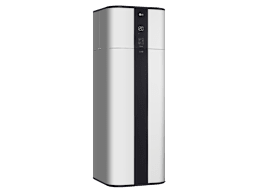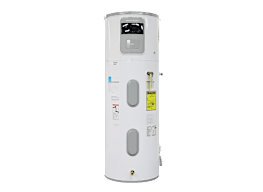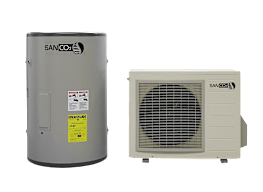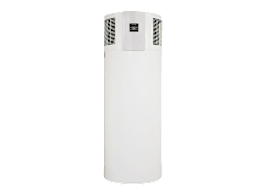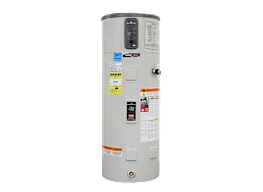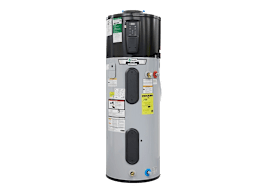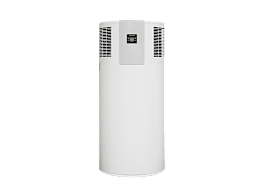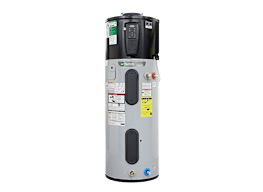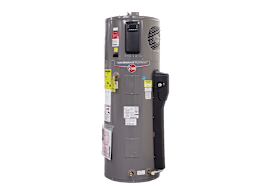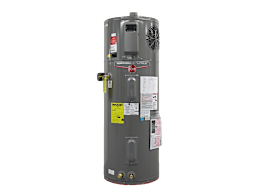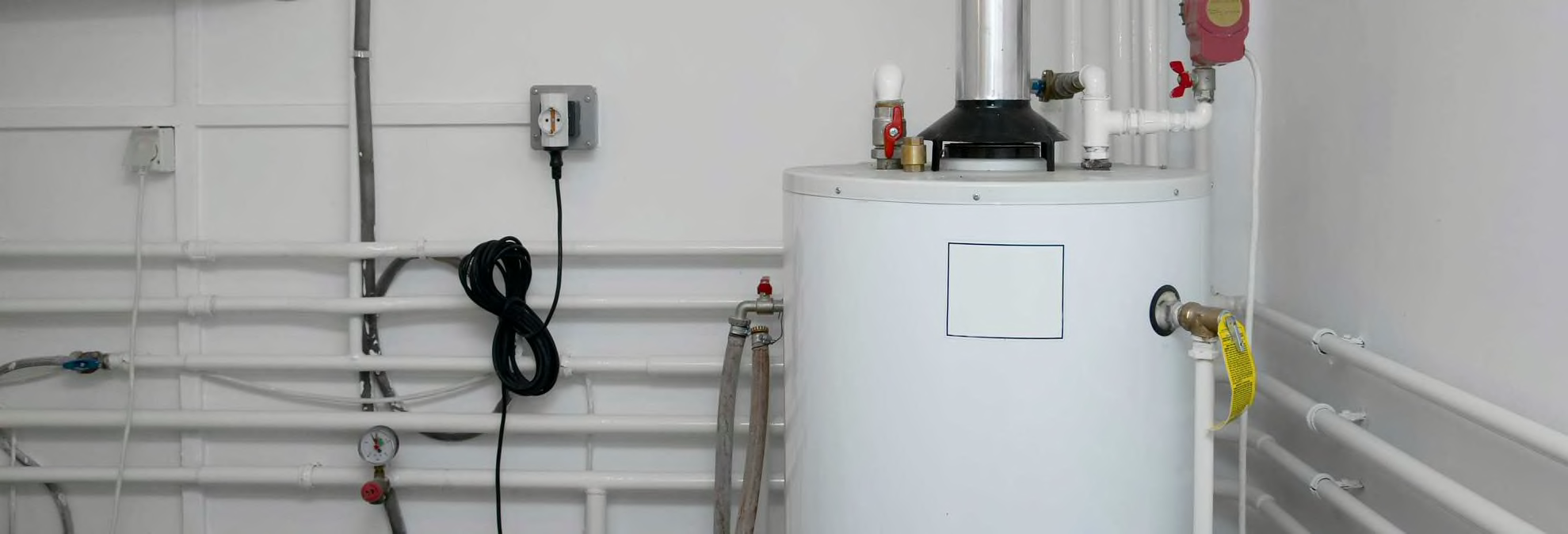
Water Heater Buying Guide

Home & Garden Writer
If you’re looking to replace an aging (or failed) water heater, particularly a standard gas or electric one, you’re in luck. Chances are good that any newer model will be more energy-efficient than the one you currently have. That’s thanks to energy-efficiency standards issued a decade ago by the U.S. Department of Energy, and again just last year (though the newer regulations are under threat of reversal).
Heating water accounts for roughly 18 percent of a household’s energy use, or possibly even more if you have an older electric water heater. When choosing a replacement, remember that this is a purchase you will live with for years. The more efficient your choice, the lower your utility bills will be for the next decade or more.
But there is a variety of types of water heaters to choose from, and energy efficiency is only one important consideration. For instance, you need to think about the hot water needs of your household. You also need to account for the infrastructure you have. Do you have a gas heater but want to go electric? You’ll need to make sure you have the electrical capacity to accommodate it, or be willing to make the necessary upgrades. Do you frequently run out of hot water? If so, you’ll want to size up to a larger model, but you’ll need to make sure you’ve got adequate space. Answering these types of questions will help you narrow down your research and understand the installation project you’d be taking on.
Before we break down the options, we can’t help but offer one piece of overarching advice: Don’t wait until your current water heater completely conks before looking for a new one. Our experts encourage you to avoid waiting for a leak, or worse, a flood, before shopping for a replacement in a hurry.
Types of Water Heaters
High-efficiency water heaters may cost more up front than standard tank heaters, and you may have to pay higher installation costs if you’re switching to a new type of water heater entirely. Even if you’re pretty certain you know what you’re looking for, it’s good to know what options are out there. Here’s an overview of the different types of water heaters you’ll encounter when you shop.
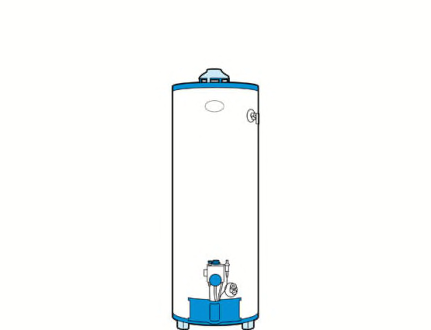
Storage Tank Water Heater
Traditional storage tank models are still the most common type of water heater. They continuously store heated water and are fueled by natural gas, propane, electricity, or oil. They typically have a tank capacity of 30 to 80 gallons. Gas water heaters generally cost less to run (by about half) than electric water heaters, though gas models cost more at the time of purchase.
Pros
✔ Overall, lower up-front cost for purchasing and installing, compared to heat-pump models.
✔ Can heat water quickly.
Cons
✘ Much less efficient than heat pump water heaters, and slightly less efficient than gas tankless units, which means higher costs over time.
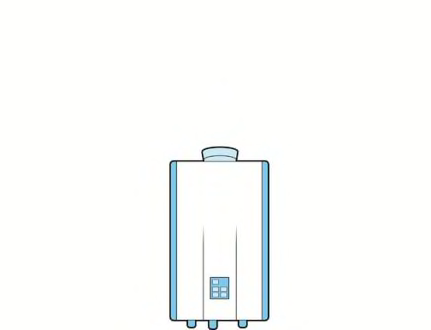
Tankless (On-Demand) Water Heater
Rather than storing water and then heating it up, tankless water heaters use a heat exchanger to heat water as needed. They’re best for people who typically don’t draw water for more than one use at a time, such as running a shower and dishwasher simultaneously. Gas versions are better for homes that already use gas to heat the water; electric models might require an expensive upgrade of the home’s electrical capacity.
Pros
✔ Delivers a constant supply of hot water.
✔ Gas-fueled versions are more efficient than gas storage tank heaters.
✔ Can fit in very small spaces.
✔ Long lifespan, with most lasting at least 20 years.
Cons
✘ Installation costs can be high.
✘ May not be able to support simultaneous hot water usage, like running a shower and dishwasher.
✘ May encourage overuse of hot water, since this type of heater can operate continuously.
✘ Need routine maintenance that includes descaling and flushing every one to two years.
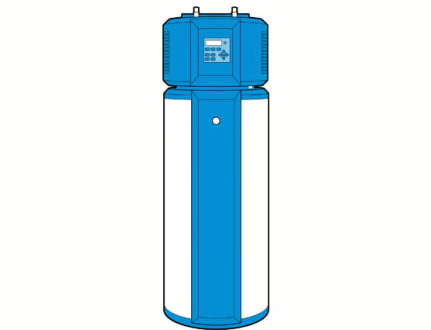
Heat Pump (Hybrid) Water Heater
Heat pump water heaters are highly efficient and look very similar to typical storage tank heaters. But these models are a water heater in two parts: a storage tank and a heat pump, which pulls heat from the air to heat the water. This design means heat pump water heaters tend to be taller than a traditional storage tank heater, and they generally require a larger space or proper venting. These units also produce condensation, which either needs to be routed to a drain or removed by installing a condensate pump. For more, check out our heat pump water heater ratings.
Pros
✔ Two to four times more energy-efficient than a conventional electric water heater, according to the Department of Energy and our tests.
✔ Available in 120-volt models, which can replace gas-fired water heaters without requiring extra electrical work or increased panel capacity.
✔ Many models have a “hybrid” mode, which means they can operate like a conventional water heater if they’re not keeping up with demand.
Cons
✘ Higher up-front cost, though current tax incentives (ending in 2025) could reduce pay-back time to a few years.
✘ Takes longer to heat water when operating only in heat pump mode.
✘ May require more complex installation, with proper venting, mixing valves, and a condensate drain.
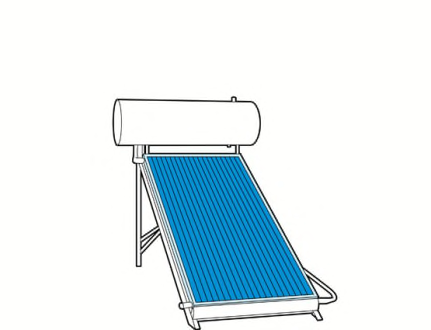
Solar Water Heater
Solar water heaters have two main parts: storage tanks and solar collectors, which absorb the sun’s thermal energy to heat the water in the tank. There are different types of collectors, and different mechanisms for transferring the heat. One mechanism circulates water directly through the solar collectors and into the storage tank. This type of mechanism works in warmer climates. Another mechanism is a closed-loop system that uses an antifreeze-like liquid, which passes through a heat exchanger to transfer heat to water in a storage tank. This type is popular in areas prone to freezing temperatures.
Pros
✔ Very eco-friendly, since you’re using the sun’s energy.
✔ The best deliver stellar savings in summer, making them attractive for warm, sunny regions.
Cons
✘ A backup system for cloudy days and times of increased demand is generally recommended.
✘ Expensive: Depending on style and size, you might spend anywhere from $1,000 to $5,000 or more.
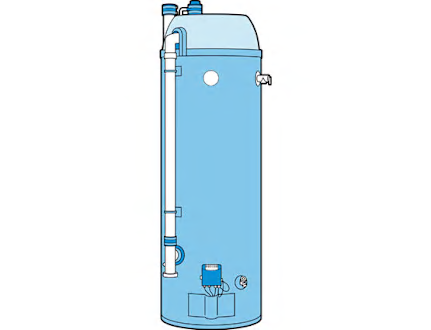
Condensing Water Heater
Condensing water heaters are a high-efficiency version of a gas storage water heater. They could be a good option for properties that heat with gas and need a unit with a capacity of more than 55 gallons. These models have a tank like a conventional water heater, but they capture exhaust gases that would normally be vented out, and then transfer the heat from the exhaust gases to incoming cold water (preheating it, in a sense). That means condensing water heaters tend to deliver more hot water than standard gas water heaters while also using less energy. Energy Star certified models may also have better insulation and more efficient burners.
Pros
✔ High-efficiency.
✔ Typically can provide more hot water before running out, compared to a standard gas storage model.
Cons
✘ Higher initial cost, though Energy Star certified models may be eligible for a tax credit through 2025.
✘ May require more complex installation, with proper venting and a condensate drain.
Which Type of Water Heater Is Most Efficient?
In 2018, Consumer Reports tested multiple electric and gas water heaters, including traditional models with tanks and tankless units. While we found that these water heaters varied by type, individual models of the same style didn’t vary much in performance. Here’s how they compared in terms of energy efficiency and cost to operate.
Electric tanked water heaters received midrange scores on energy efficiency and low-level scores for energy consumption costs, meaning they cost more than many other types of water heaters to operate.
Electric tankless water heaters got very good scores for energy efficiency, and low scores for energy consumption costs.
Gas tanked water heaters received midrange efficiency scores and very good energy consumption cost scores. That’s in part because natural gas tends to be an inexpensive fuel.
Gas tankless water heaters received very good scores for efficiency and excellent scores for energy consumption costs.
More recently, we tested 10 electric heat pump water heaters. Our tests found these units to be extremely efficient as a group. And there are also significant differences between models. See our ratings of heat pump water heaters.
What Size Water Heater Do You Need?
To determine the size of the water heater you need, you’ll have to think about how much hot water you use.
Tank water heaters typically hold 40, 50, or 55 gallons or more. The size you buy depends on the number of people living in your home and your peak water usage. A family of four, for instance, might take several showers, run the dishwasher, and wash a load or two of laundry in a day, possibly using 100 gallons of hot water or more. But that doesn’t mean that a household needs a 100-gallon storage tank, since water heaters operate continuously to produce more hot water over time.
For storage tank water heaters, it’s important to consider the first-hour rating, which is the number of gallons a water heater can deliver in an hour starting with a full tank of hot water. You can find this rating on the water heater’s EnergyGuide label. To calculate what first-hour rating might work for your home, use the calculator on the government’s Energy Saver website.
And if you’re sizing up your tank—or even swapping out the same size—don’t assume that a new water heater will fit where your old one was. Because of increased insulation and other efficiency improvements, some newer models may be wider and/or taller than your old water heater.
Tankless water heaters, of course, don’t store a reserve of water, so the number to look for when thinking about your hot water needs is the gallons-per-minute rating (GPM). That’s the number that tells you how much hot water the heater can deliver over a set period of time. The higher the GPM, the more hot water the unit can deliver. If you have a big family and multiple bathrooms, you’ll need a tankless water heater with a higher GPM. A typical shower, for example, uses about 2 gallons per minute. Front-loading washing machines use about 10 gallons of water per load, while agitator top-loading washers may use about 20 gallons. Calculate your needs accordingly.
Other Features to Consider
Uniform Energy Factor (UEF): The UEF is the Department of Energy’s measurement for how energy-efficient a water heater is, and it was created to let consumers compare efficiency between models. The higher the UEF, the more efficient the water heater. You can find the UEF of Energy Star certified heaters on Energy Star’s website and of other models in their manufacturer’s specifications. But the Department of Energy cautions people against choosing a water heater based solely on the UEF, since factors like first-hour rating and overall cost are also important.
Warranty: Coverage for water heaters typically runs three to 15 years. Though you’ll usually pay a bit more for models with longer warranties, we’ve found that they tend to have larger elements or burners that can speed up water heating, have thicker insulation for lower heat loss, thicker tank walls, and larger sacrificial anodes. Choose a water heater with the longest warranty available.
Mixing valve: A mixing or blending valve can help you increase your hot water capacity. If you find that your water heater often doesn’t meet your hot water demand, you can increase the temperature of the water in the storage tank. The mixing valve blends cold water with the very hot water to deliver the usual, desired temperature to the tap, effectively increasing the amount of hot water available. A mixing valve can be a good option if a smaller hot water tank fits your day-to-day purposes (or if you physically need a smaller tank for your space), but you want more hot water for visitors or when kids come home from college.
Brass vs. plastic drain valves: These are specific to water heaters with storage tanks. The valves are situated near the base of the tank for a garden hose that drains the heater. Look for brass drain valves, which are more durable than plastic.
Glass-lined tanks: They’re designed to reduce corrosion in a water heater’s storage tank.
Digital displays and WiFi connectivity: Yes, there’s very likely an app for your water heater now, which enables homeowners to track energy use and access program controls, such as vacation modes to reduce costs. Displays on solar water heaters often show tank and collector temperatures, along with pressure readings and other info.
Do Water Heaters Require Maintenance?
Yes, water heaters require some routine maintenance, which would be outlined by the manufacturer, though some types may need more attention than others. Whatever the requirements, a little regular TLC can extend your water heater’s life and make sure it’s working as efficiently as possible.
For instance, nearly all hot water heaters have a pressure relief valve (a valve that prevents excess pressure from building up) that should be checked annually. A yearly check of all gas and water pipes for leaks is prudent, too.
If you have a storage water heater, maintenance may include flushing a quart of water from the tank every few months, checking the temperature and pressure valves every six months, and inspecting the anode rod (meant to protect the tank from corrosion) every few years.
If you have hard water, you may want to install a water softener to reduce hard minerals that build up. And some brands advertise anti-scale devices, which are supposed to reduce the buildup of mineral scale at the bottom of the tank by swirling the water.
Maintenance for an on-demand (tankless) water heater might include cleaning the filter monthly or periodically descaling the heat exchanger tubes. For solar water heaters, you’ll want to do yearly checks for shading—think new vegetation or construction—to make sure nothing is blocking your solar collectors. You’ll also need to replace any heat transfer fluids periodically.
But you don’t need anything fancy to ensure your water heater is cared for and working properly. Just read the owner’s manual and make sure you understand the instructions and potential costs of maintaining—or even repairing—your water heater over its lifespan.
How We Test Water Heaters
Consumer Reports tests heat pump water heaters. To come up with our ratings, we test all models in heat pump mode only (even if they have the option to operate in “hybrid” mode, using electric resistance heating). We fill each water heater tank with cold water of the same temperature and then set them to reach a desired temperature of 120°F. We measure how long it takes for each model to reach 120°F, along with how much energy each model uses by measuring the wattage.
Water Heater Brands
A.O. Smith makes residential and commercial water heaters, boilers, and storage tanks that are sold exclusively by plumbing wholesalers and plumbing contractors. It manufactures tankless, hybrid, solar, and high-efficiency tank water heaters.
General Electric makes gas and electric water heaters. GE tank water heaters are available in multiple sizes, with multiple levels of warranty coverage and energy-efficiency claims that vary by size. The company’s tank water heaters are available exclusively at Home Depot. General Electric also makes GeoSpring, a line of electric heat pump water heaters manufactured in the U.S.
Kenmore makes gas and electric water heaters. Its water heaters are available in multiple sizes, and in Power Miser and Hydrosense electronic-temperature-control configurations. Kenmore water heaters are available at Sears and other retailers.
Rheem manufactures and markets gas and electric water heaters. Rheem makes residential water heaters in tank, tankless, and point-of-use configurations and units that work with solar water heating systems. Rheem water heaters are available in multiple sizes and with multiple warranties, with energy-efficiency claims that vary by size. Rheem tankless water heaters are available at Home Depot. Its tank water heaters are available online and through a network of dealers.
Whirlpool manufactures and markets gas and electric water heaters. Whirlpool tank water heaters are available in multiple sizes, and standard and power vent configurations. Whirlpool water heaters are available at Lowe’s.
Other water heater brands currently on the market include: Bradford White, EcoSmart, Rinnai, State, Bosch, Navien, Noritz, Tempra, and Trutankless.
